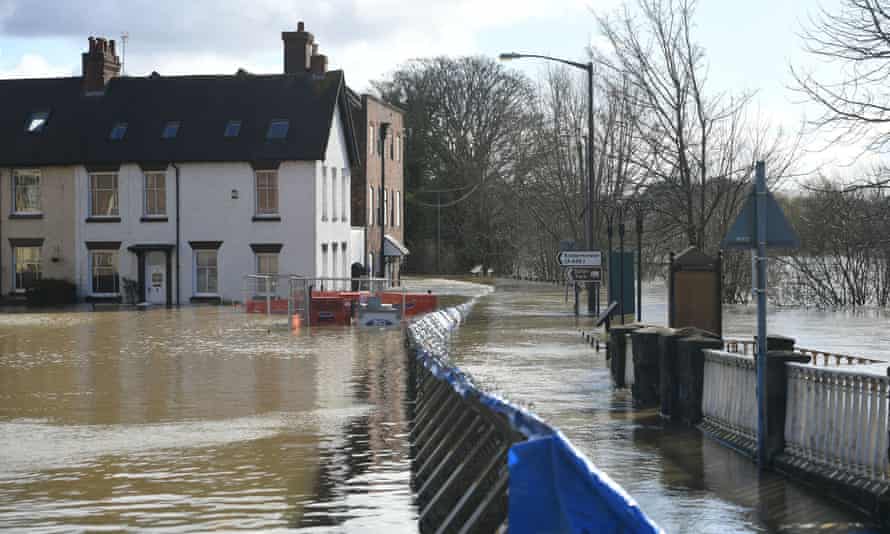The Guardian view on adapting to global heating: risks must be faced
Investment in flood defences is overdue. But progress on climate resilience requires confronting vested interests too

Nothing about the climate crisis is easy. The challenge of adapting to global heating and the climate disruption it causes is particularly hard. It forces us to reckon with harms that cannot be undone and is sometimes viewed as jeopardising progress on reducing emissions, by drawing away resources and political will. After all, if we can adapt to climate chaos, why bother trying to prevent it?
Since this argument is a staple of climate deniers, such fears are well founded. But unless we are prepared to stand by as people’s lives are destroyed by extreme weather, adaptation is required. For the relief and protection that they will bring to large numbers of people living in flood-prone areas, last week’s announcements of record funding for new defences in England, along with new guidance and insurance rules, must therefore be welcomed. Disastrous floods in Belgium, Germany and China, and the horror of the North American “heat dome”, have alarmed scientists and focused minds.
But no one should be under any illusions about a governing party that is yet again playing catch-up. The truth about climate adaptation in the UK is that successive Tory administrations have denied the urgent need for investment. Under Owen Paterson, the former environment secretary who once described global temperature rises as “quite modest”, adaptation funding was slashed from GBP29.1m to GBP17.2m in a year. The number of people working for the government directly on measures such as flood defences and heat resilience fell from 38 to just six between 2013 and 2018. Two years ago, the Climate Change Committee described this approach as “like a Dad’s Army”.
Whether it is now consigned to the past remains to be seen. A new budget has been promised, with GBP860m due to be spent next year, much of it in hard-hit northern regions, and GBP5.2bn over the next six years. But the government’s record in the pandemic is far from reassuring when it comes to delivery. One of the problems identified in relation to surface water flooding is that responsibilities are split between local flood authorities, the Environment Agency and Met Office, while maps outlining risks are out of date. The question is whether a government that consistently prioritises an ideological commitment to competition over other considerations is willing or able to oversee the streamlined public administration that is needed. This is not only to protect people from flooding in the short term but to think creatively about the radical changes in lifestyles and the built and natural environment that will be required in the coming decades.
Ministers’ willingness to confront the powerful construction industry is also doubtful. With one in 10 of all new homes in England since 2013 built on land at high risk of flooding, and environmental standards on new builds disgracefully low, here is another reason to worry both about the Tory party’s reliance on developers for donations, and the wider economy’s overreliance on property sales. Adapting to the climate crisis requires squaring up to vested interests, just as limiting it through emissions cuts does. The risks of not doing both grow ever clearer.